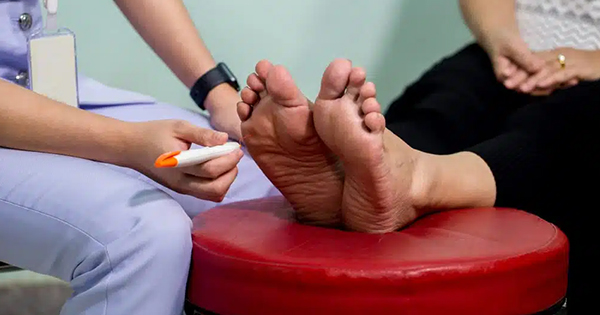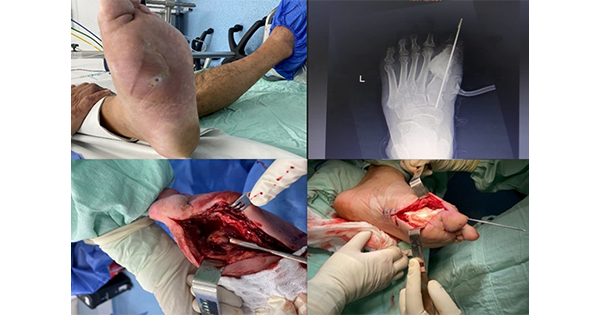The podiatry workforce within the NHS across the UK is facing significant challenges both in terms of recruitment of graduates and retention of podiatrists within services. Over the past 15 years, the profession has seen the development of sub-specialisms in diabetes, vascular, musculoskeletal (MSK), rheumatology and a number of others. While this has been largely seen as a positive development across the profession, it is not without its workforce challenges. Podiatry itself is already a highly specialised area of healthcare, having such a narrow focus on foot ankle and lower limb.
It could be argued that all podiatrists should be able to address all lower-limb problems to a level of competence commensurate with a general practitioner’s role in the medical world, rather than the oft-repeated mantra that says “I’m a diabetes specialist. Why would I need an anatomy refresher?” or “I’m an MSK podiatrist. Why would I dirty my hands treating a wound?”
One of the interesting challenges during the COVID-19 pandemic was the suspension of MSK services in podiatry, with many of these clinicians being redeployed into foot protection teams. The integration of MSK into foot protection service provision offered the opportunity for podiatrists to demonstrate their specialist superpower; the integration of in-depth knowledge about the whole of the foot, ankle and lower limb, rather than the frequently fragmented approach adopted historically.
Many young graduates face the unenviable decision of “what specialism should I focus on?” with the prospect of career progression that requires a binary approach to MSK or foot protection. Surely the answer to this dilemma is to encourage all podiatrists to keep their core skills of anatomy, vascular assessment, wound management and functional rehabilitation current — at least to the level where they could adequately triage any patient walking in to a service off the street.
We do ourselves no favours as podiatrists by becoming so narrow in our skill set that we lose the broader set of specialist skills that made us podiatrists in the first place. A consultant in diabetes working within a multidisciplinary team delivering foot protection also takes their turn as a receiving physician — dealing with whatever comes through the door simply because they are, first and foremost, a doctor.
Surely, podiatrists are no different in this regard? While this may seem a contentious proposal, given the national shortage of podiatrists within our systems, we need to maximise the generic skills of the profession to a greater degree in order to secure a sustainable workforce for the next 10 to 15 years.




